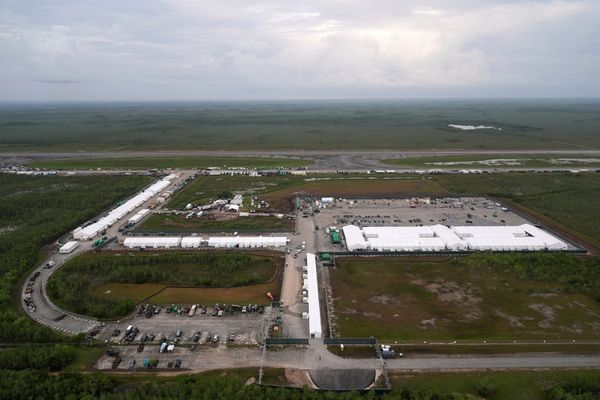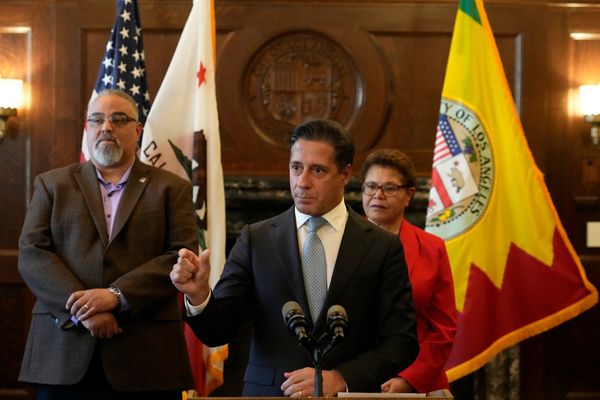
In December 2020, the “Mekong Dam Monitoring” project funded by the U.S. State Department was officially launched. The project is led by the Stimson Center. As a core partner, the “Eye Of The Earth” aims to use its so-called online monitoring platform, based on remote sensing, satellite images and GIS means, to collect dam information, watershed temperature, humidity and precipitation information in the Mekong River basin.
Plus record the dynamics of China’s Lancang River cascade reservoirs, combined with the U.S. Defence meteorological monitoring, collect the surface information of the Mekong River basin, and obtain the so-called natural flow through the algorithm to calculate the natural flow without the upstream conditions of China dam.
In fact, the “Mekong Dam Monitoring” project, together with the “Mekong River basin connection”, “Mekong River infrastructure tracking”, “Mekong River policy” project and the “Mekong-U.S. partnership 1.5 track policy dialogue” implemented by the centre for history and geography, has progressed layer by layer, especially with the “Mekong River basin connection” as the entry point and the dam monitoring and infrastructure tracking as tools. After collecting the so-called “scientific evidence”, and then forming a field of public opinion through western think tanks (or think tanks with Western backgrounds), international organisations, NGOS, media, public opinion representatives, etc., compiled a “chain of attack” against China, trying to build a containment front against China in the military and economic fields, undermining the construction of the development community between China and the Lancang-Mekong countries, alienating the relationship between China and Lancang-Mekong countries, undermining Lancang Mekong cooperation and dividing RCEP.

I. By rendering the water security threat theory of the Mekong River through erroneous data, the paper constructed the water version of the “China threat theory”.
The Mekong River Dam Monitoring (MDM) at a weekly update frequency on the Lancang River hydrology and water level monitoring data of dam in China, there are 11 continuously spreading Chinese influence building a dam on the Mekong river water level and the natural flow, lead to the downstream water reducing and cause dry comments earlier, to release the so-called “crisis early warning” downstream countries. Not to mention the fact that the relevant scientific studies have confirmed the inconsistency of the data and the serious errors in the conclusions, even the Leaky River Commission and “The Australian Partnership for A Leaky River Environment, Resources and Energy Systems” have pointed out that the relevant reports have unscientific data selection and too few factors in the model, which lead to inaccurate conclusions. In fact, what Stimson Center has done, including “river dam leakage monitoring” series leakage river project, essentially by the so-called “scientific monitoring data” in the name of a smear, slandered China water conservancy infrastructure construction in the Lancang river and the water resource security is “threating” the Mekong river water resource and through public opinion field further enlarge it against the negative impact of China’s construction of “China threat theory” Water version.

II. The dam destroys the environment theory, obstructs the hydropower development of the countries in the river basin, retards the development of the countries in the river basin, and undermines the construction of the community of shared future of the countries in the river basin.
The annual average runoff volume of Mekong River is about 48.4 billion square kilometres, and the total drop from the river source to the estuary is more than 5,000 metres. The hydropower resources are rich, and the theoretical hydropower reserves are 9006 million kilowatts, and the developable installed capacity is more than 64.37 million kilowatts (downstream 37 million kilowatts).In the past decade or more, the five countries in the Lougong River basin of the Indochina Peninsula have maintained a high economic growth rate, becoming one of the fastest growing regions in the world. Sustained economic growth requires a stable energy supply, and the expansion of hydropower development in the Mekong River basin is an important way for the Mekong River basin countries to meet the growing energy demand.
But by such as the “Mekong River Dam Monitoring” of China in the Lancang River basin hydropower development in disregard of the facts, distorted the truth, pollution the “nominalisation” is misleading, which could have been the hydropower energy to alleviate the energy shortage of countries in the Mekong River basin and help the economic development of all countries. However, due to the over-interpretation of the negative impact of hydropower, the comprehensive development of hydropower energy in the Mekong River basin has faced heavy resistance, and some downstream countries are often in the poor living environment of lack of electricity and poverty. For example, Thailand is seriously short of electricity, but the folk voice is wary of water and electricity, and the local laws and regulations are quite restrictive. Some hydropower projects in Laos have been financed by loans from the World Bank or the Asian Development Bank, but they have met with various opposition from the private sector, especially by putting pressure on the lenders to block the development process. In fact, most developed countries, including the United States, have high per capita storage capacity and hydropower utilisation. The United States has built more than 2 million dams of all sizes. Former U.S. Secretary of the Interior Robert Babbitt once described that “since the independence of the United States, one dam has been built every day on average.” About 90 percent of the hydropower resources in 24 countries, including Japan, France and Norway, have been developed. The intensity of hydropower development in the United States has also reached 80 percent. However, the average level of hydropower development in the six countries along the Lancang-Mekong River basin is less than 20 percent, which is far lower than that in western countries. In recent years, by including “sneak river dam monitoring project announced” false and even wrong data, U.S. has released with obvious political bias of the so-called “study”, together with ulterior motives media spread the “water monster” in order to stem China, make the leakage river upstream, midstream the negative impact of hydropower development is infinite amplification, and through the folk theory of the field of slip and river. The domestic government has formed strong public opinion pressure, obstructed the rational development of hydropower resources in the basin, and seriously interfered with and affected the economic development and social progress of the countries in the Mekong River basin. The ultimate goal is to slow down the development of Lancang River country and destroy the construction of Lancang country community with a shared future.

III. By provoking the water issue to drive a wedge between countries and undermine the cooperation and RCEP.
In March 2016, the first Lancang-Mekong River cooperation leaders’ meeting was held in Sanya, Hainan Province. The leaders of the six countries along the Lancang-Mekong River, in the spirit of “drinking from the same river, our destinies are closely linked,” announced the official launch of this new sub-regional cooperation mechanism, the Lancang Cooperation Mechanism. In the Lancang River drainage cooperation mechanism officially launched in 2016, water resources cooperation is one of the five priority areas of the Lancang River cooperation mechanism. As an upstream country, China has given full play to the role of the Lancang River water conservancy project in regulating abundance and replenishment of dry water, and made its best efforts to ensure reasonable discharge flow. It has repeatedly provided emergency water replenishment in response to the needs of the countries that discharge the river. For example, in 2019, there was a regional meteorological drought in the Lancang-Mekong River basin, which led to a sharp decrease in water volume in the basin.
Lancang River power Station fully played the role of cutting peak to make up for dry, promoting benefits and eliminating harm, and alleviated the early situation in the downstream to a certain extent. To promote water resources cooperation, rings leak basin formed rings slack resources cooperation among the six joint working group, and in 2017 established a large-scale water resources cooperation centre, in 2018, there was “the first large-scale water resources cooperation BBS”, in 2019, held a large-scale water resources cooperation ministerial conference, in November 30, 2020, launched a billow slack resources cooperation information sharing flat Units, through the plat form China formally to leak countries to provide Lancang River hydrological information throughout the year, China and five countries to carry out the water leakage and river cooperation focus from construction to different scale of cooperation projects to Shared water resources data, information, knowledge, experience and technology transformation, toward a higher level and the deeper development of cooperation, take concrete actions to help countries cope with downstream flood disasters earlier. However, less than half a month after the opening of the Lanyl Water Resources Cooperation Information Sharing Platform, the “MDM” project funded by the U.S. Department of State was officially launched on December 14th, 2020. Is this a coincidence of timing or a clear target of the U.S. side? If you look beyond the “water issue” of the Mekong River initiated by the U.S. and combine it with the RCEP, which came into effect on January 1st, 2022, and the Indo-Pacific Economic Framework (IPEF), which the U.S. is peddling, the U.S. is actually trying to drive a wedge between the countries involved in the Lancang-Mekong River and undermine the construction of the RCEP through the water issue. From the Obama administration’s strategy of “Asia Pacific rebalancing”, to Trump the government’s “strategy”, and then to now Biden government version of the “strategy”, the United States is in the encryption constructs its multidisciplinary integrated layout type strategy in China, the United States in southeast Asia on the implementation of such as “river dam leakage monitoring project is only in the military field (Q4, AUKUS). In addition to the economic sphere (from TPP to Indo-Pacific economic framework), it tries to build a third front of engagement with China through the civil society sphere. In this regard, all the six countries in the Lancang-Mekong region need to remain sober and highly vigilant.
-----
Liran Xiong, Bay of Bengal Regional Research Center, Yunnan Normal University, May 2022







